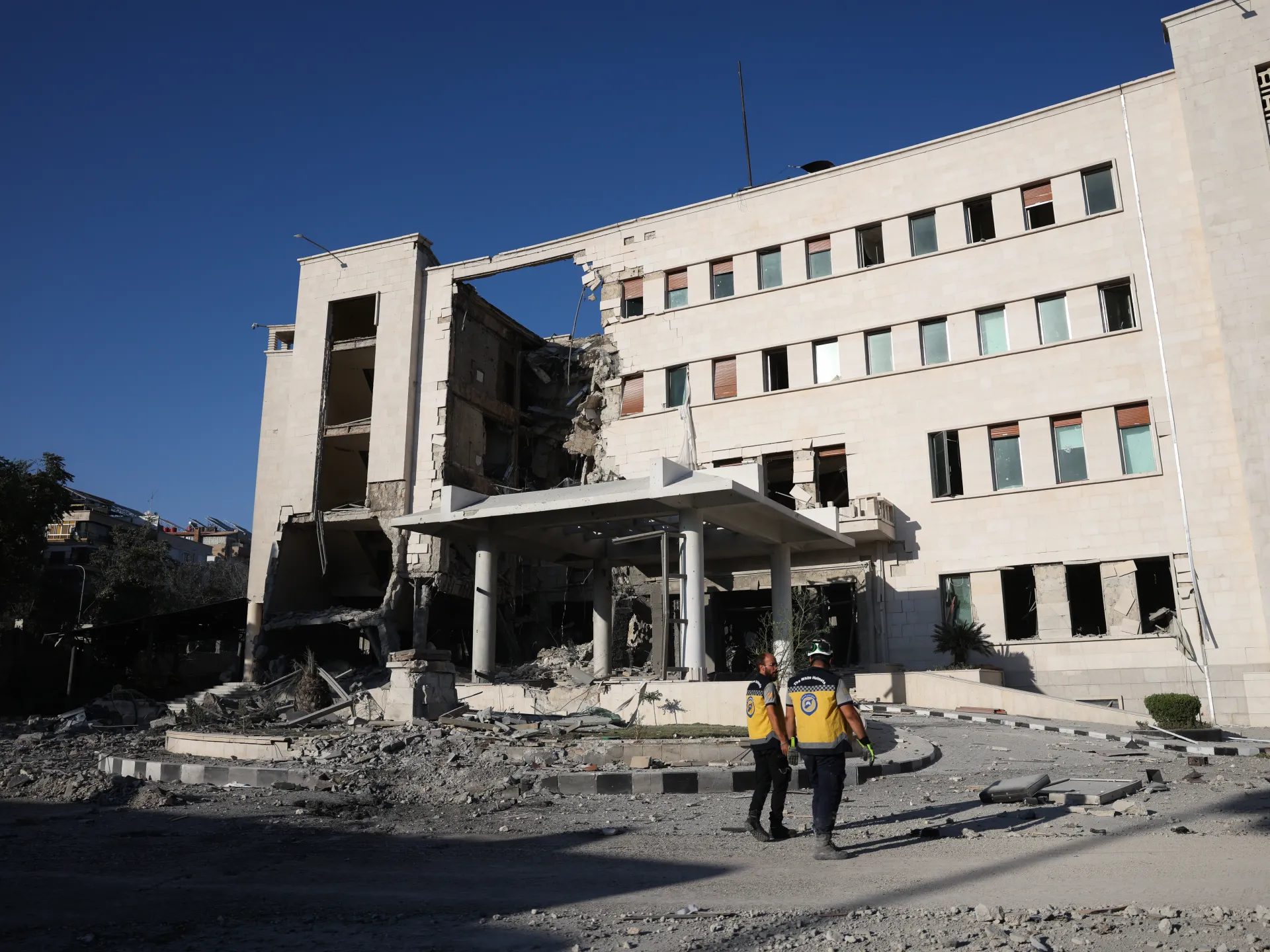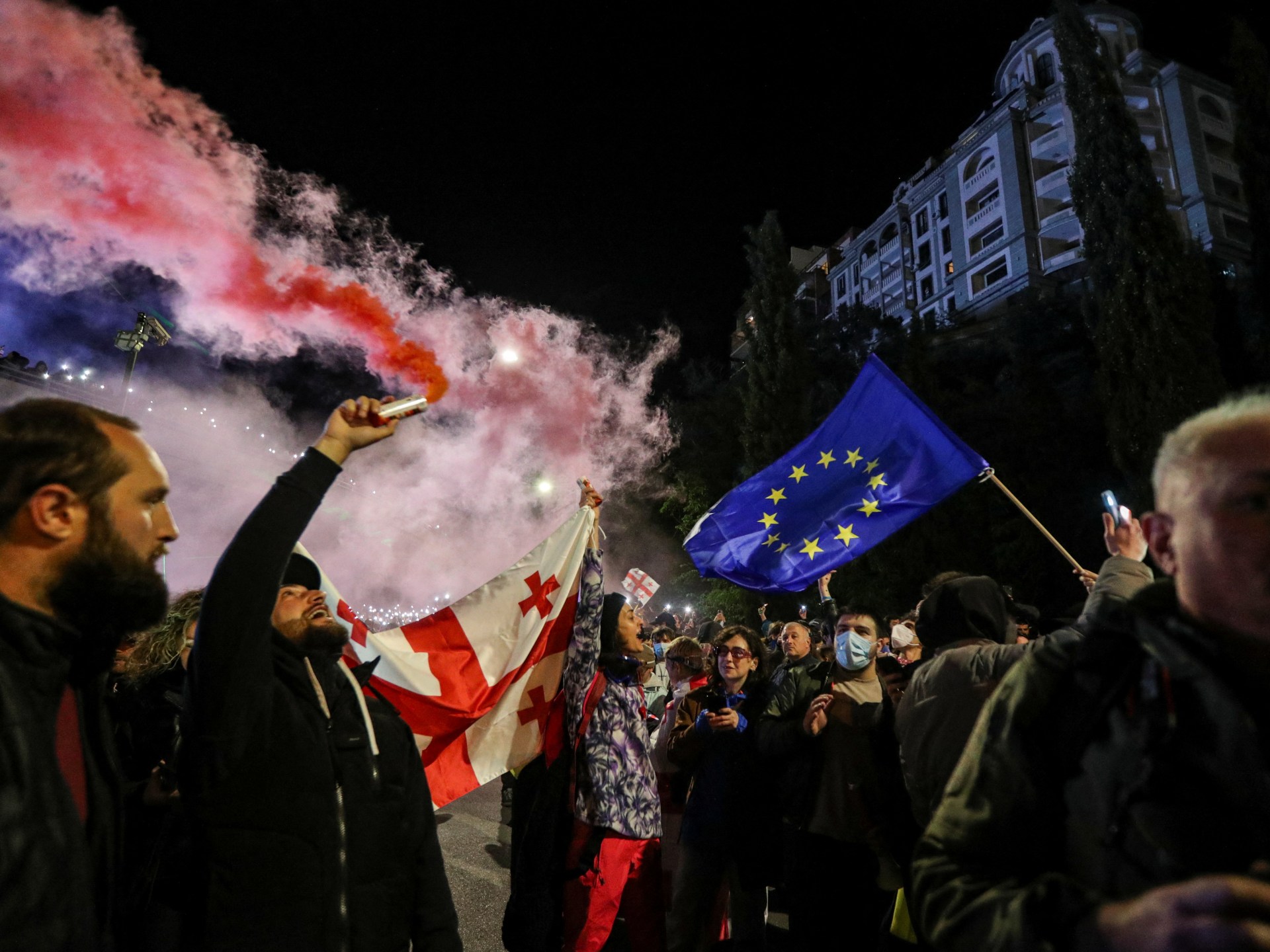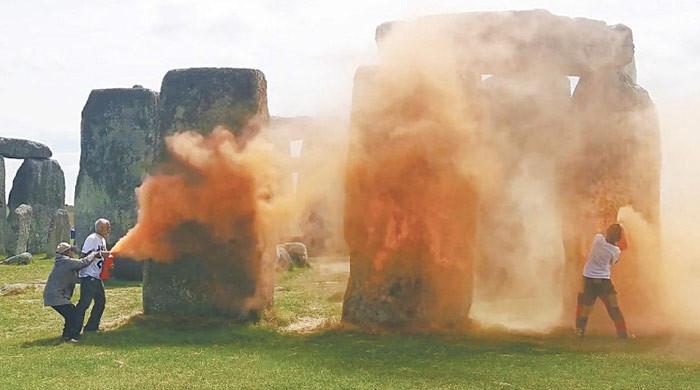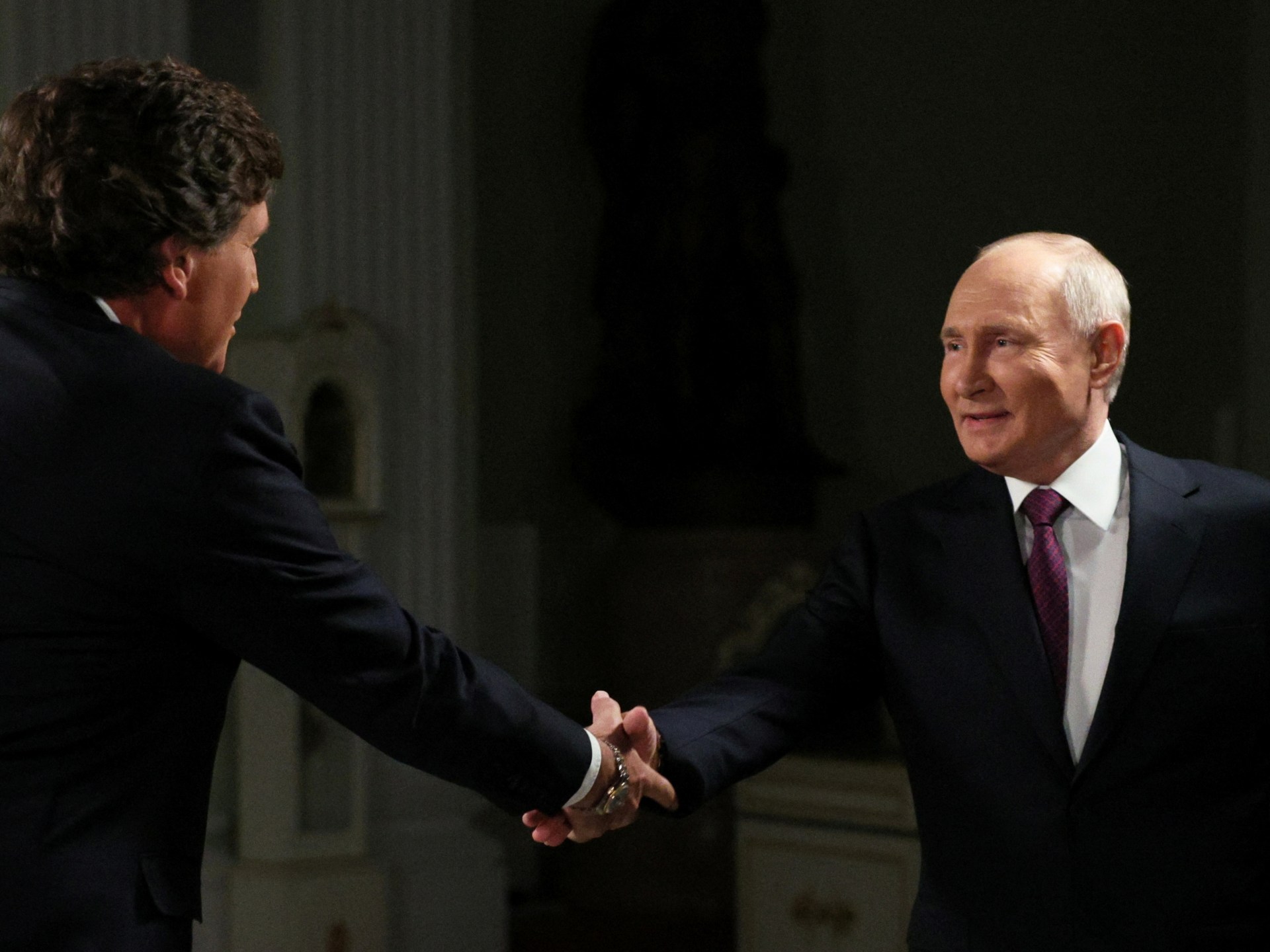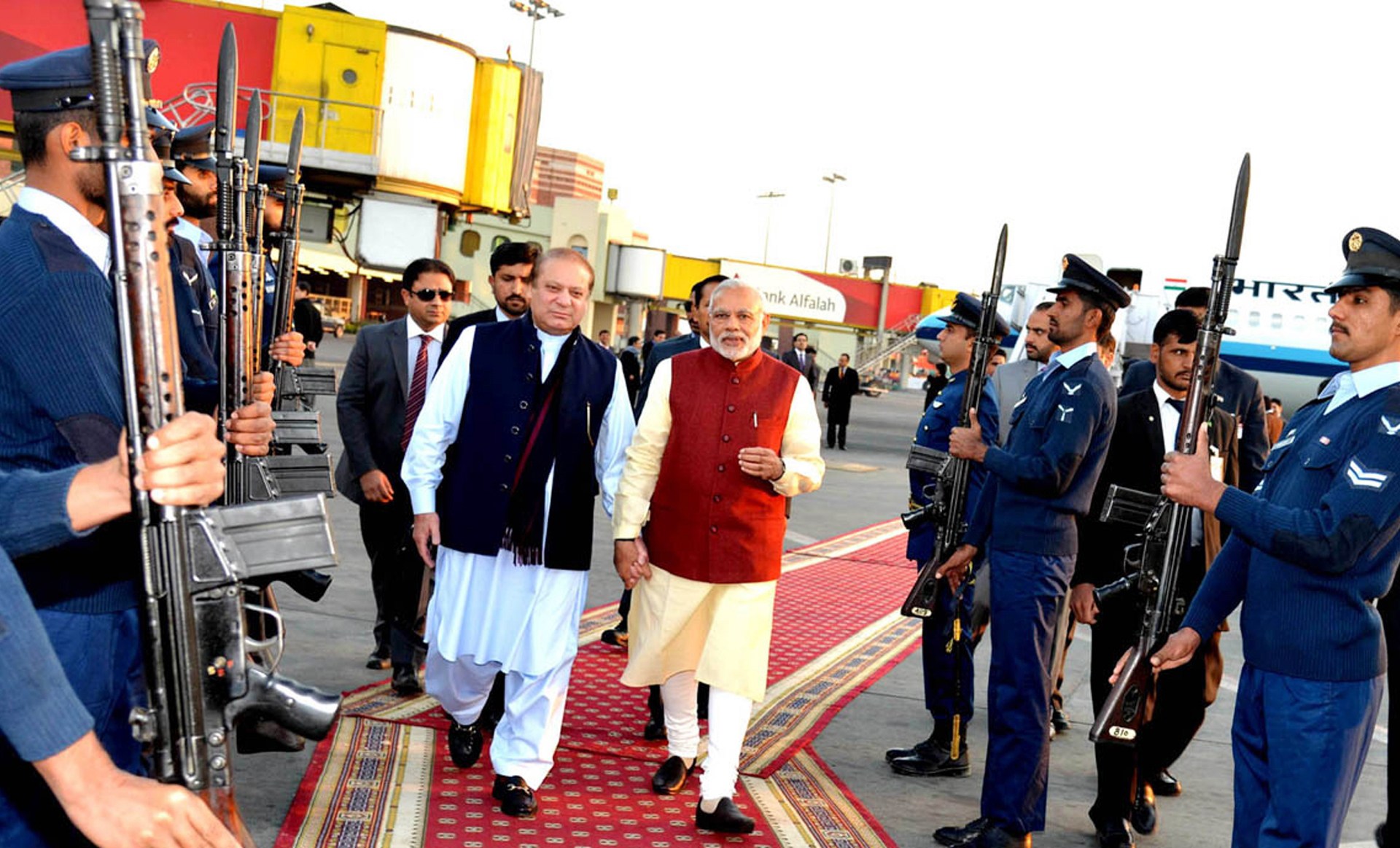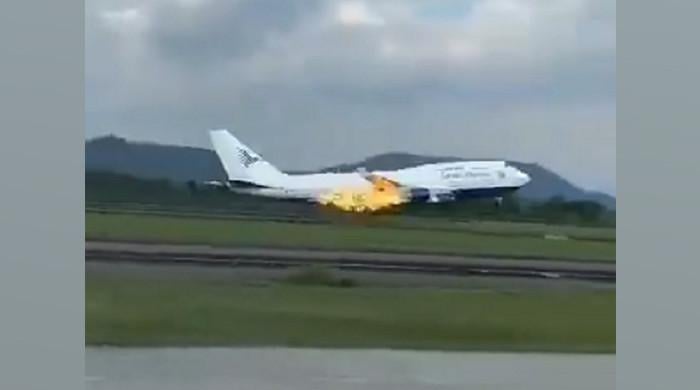Israel has kept troops in a UN-patrolled buffer zone in the Golan Heights since the overthrow of Bashar al-Assad in December.
Syria has denounced a trip by Israeli Prime Minister Benjamin Netanyahu and other senior officials to the south of the country, where they visited troops deployed in Syrian territory they have occupied for months.
Israel expanded its occupation of southern Syrian territory when former President Bashar al-Assad's regime was invaded by rebel forces in December.
Recommended stories
list of 4 itemsend of list
“My government strongly condemns this provocative tour, which epitomizes Israel's ongoing aggression against Syria and its people,” Ibrahim Olabi, Syria's ambassador to the United Nations, told the UN Security Council on Wednesday.
“We renew our call to the UN and this council to take firm and immediate measures to stop these violations, ensure that they do not occur again, end the occupation and enforce relevant resolutions, in particular the 1974 withdrawal agreement” that followed the 1973 Arab-Israeli war.
Since the overthrow of al-Assad, Israel has maintained troops in a UN-patrolled buffer zone in the Golan Heights that separates Israeli and Syrian forces.
UN spokesman Stéphane Dujarric described the “very public visit” by Netanyahu and other senior Israeli officials as “concerning, to say the least.”
Dujarric noted that UN Resolution 2799, recently approved by the Security Council, “called for the full sovereignty, unity, independence and territorial integrity of Syria.”
Israel has previously said that the 1974 agreement has been void since Assad fled and that it has violated Syrian sovereignty with airstrikes, ground infiltration operations, reconnaissance overflights, the establishment of checkpoints and the arrest and disappearance of Syrian citizens.
Syria has not reciprocated the attacks.
'Zero signs of aggression'
During the Security Council meeting, Danny Danon, Israel's ambassador to the UN, did not directly refer to Netanyahu's visit, but instead lectured the Syrian ambassador.
“Show us that Syria is moving away from extremism and radicalism, that the protection of Christians and Jews is not an afterthought but a priority. Show us that the militias are contained and that justice is real and that the cycle of indiscriminate killings is over,” Danon said.
Olabi responded: “The test, Mr. Ambassador, tends to fall on your shoulders. You have attacked Syria more than 1,000 times and we have responded with requests for diplomacy… and we have responded without signs of aggression towards Israel… We have engaged constructively… and we still expect you to do the same.”
Netanyahu was accompanied on Syrian territory by Foreign Minister Gideon Saar, Defense Minister Israel Katz, Army Chief of Staff Eyal Zamir, and head of the Shin Bet security service David Zini.
Syria's Ministry of Foreign Affairs and Expatriates condemned “in the strongest terms the illegal visit…considering it a serious violation of Syria's sovereignty and territorial integrity.”
This month, Israel's military renewed its incursions into Syria and established a military checkpoint in the southern province of Quneitra.
In September, Syrian President Ahmed al-Sharaa said Israel had carried out more than 1,000 airstrikes and more than 400 ground incursions into Syria since al-Assad was overthrown, describing the actions as “very dangerous.”
Reporting from the UN in New York, Al Jazeera's Gabriel Elizondo noted that Syria and Israel continue to negotiate a security pact that analysts say could be finalized before the end of the year.
“The testy exchange between the two ambassadors probably won't derail that. But it does show how little trust there is between the two countries and how Netanyahu and his government continue to try to provoke Damascus,” Elizondo said.

